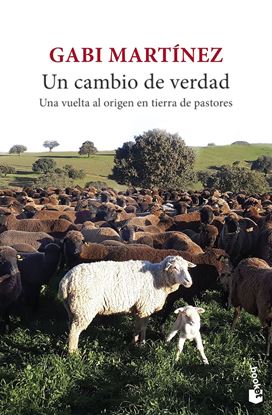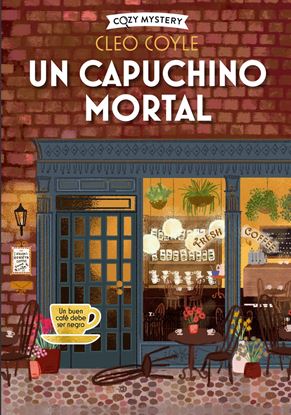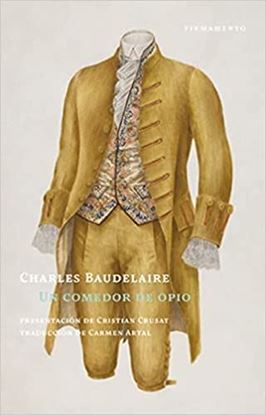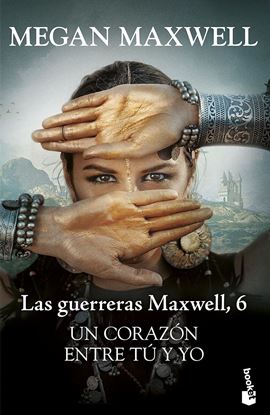

UN CAMBIO DE VERDAD (BOL) (OF1)
En pleno invierno, Gabi Martínez se instala como aprendiz de pastor en la Siberia extremeña para experimentar la forma de vida que su madre conoció de niña. Allí sobrevive en un refugio sin calefacción ni agua corriente, al cuidado de más de cuatrocientas ovejas. Pronto conoce a los habitantes de la zona y va impregnándose de sus diferentes maneras de entender el campo. Es entonces cuando decide afrontar un cambio aún mayor. Uno de verdad. A través de una experiencia radical, este libro despierta nuestra conciencia ambiental, nos conecta con aquellos que nos precedieron y nos ayuda a comprender nuestro presente para transformarlo en un estilo de vida más sencillo, en armonía con la naturaleza.
300
UN CAPPUCINO MORTAL (COL. COZY MYSTERY)
Clare Cosi es la encargada de la histórica cafetería Village Blend de Nueva York. Vive feliz junto a su gata Cafelito en un apartamento justo encima de la cafetería. Pero todo da un giro inesperado cuando descubre en la trastienda el cuerpo de la subencargada del negocio rodeado de posos de café. Al no encontrar indicios de violencia, la policía concluye que se trata de un accidente, pero Clare no opina igual. Ella piensa que algo se cuece. Si quiere llegar al fondo del asunto deberá investigar por su cuenta y rápido... antes de que alguien más corra la misma suerte. Porque un buen crimen, como el buen café, siempre debe estar a punto.
950
UN COMEDOR DE OPIO
A mediados del siglo XIX, Charles Baudelaire tradujo, glosó y adaptó al francés Confesiones de un opiófago inglés, de Thomas de Quincey, publicado en 1821 y al que seguiría, más de dos décadas después, Suspiria de profundis. Su adaptación acabó siendo una mise en abîme que permitió a Baudelaire imbricar sus impresiones y juicios particulares así como su práctica poética en la obra del ensayista inglés, a quien consideraba «su hermano mayor». Flaubert, Glatigny o Barbey d'Aurevilly no escatimaron elogios hacia la obra, cuyo éxito literario radicaba en la forma que Baudelaire había logrado conferirle.
600
UN CORAZON EN JUEGO (SERIE HOSPI. W. 2)
Cuando ocurre un accidente devastador en el Hospital Whitestone, el mundo se detiene por completo. La residente Sierra Harris es una de las primeras en llegar al lugar de los hechos, pero se bloquea cuando ve que Mitch Rivera está entre los heridos. Sierra quiere mantenerse alejada de él, no quiere que nada de esto la afecte porque no necesita una distracción para convertirse en una de las mejores cirujanas cardíacas. Hace tiempo que Mitch se coló en su mente, y en su corazón...
995
UN CORAZON ENTRE TU Y YO (BOL)
La sexta entrega de la saga romántica medieval «Las guerreras Maxwell».
En su lecho de muerte, Harald Hermansen le prometió a su amada Ingrid que dejaría Noruega y se trasladaría a vivir en Escocia. Harald añora su país, como añora a su mujer y sus gentes, pero sabe que regresar al Reino de Song no sería buena idea, especialmente porque allí ya no le queda nada. A pesar de ser considerado un bárbaro vikingo en aquellas tierras, gracias a la ayuda de Demelza y de Aiden McAllister, su marido, Harald consigue llevar una vida tranquila, sacar adelante su propia herrería y ser aceptado por la mayoría de los parroquianos. Pero todo comienza a complicarse cuando aparece una joven llamada Alison. Ella y su manera de comportarse, tan parecida en ocasiones a la de su fallecida mujer, lo atrae y lo espanta al mismo tiempo. Pero si algo tiene claro es que no quiere volver a enamorarse, y menos de una mujer como aquélla.
¿Será capaz Harald de decirle adiós al pasado, vivir el presente y crear un futuro?
850
UN CORAZON EXTRAVIADO
Esta novela rescata una biografía novelada del poeta, Pedro Garfias perteneciente a la Generación del 27, su vida en España, su paso por la Residencia de Estudiantes y amistad con los miembros de dicho grupo, su participación dentro de la guerra civil, su exilio en México y su muerte en la ciudad de Monterrey, al norte de México. ¿Qué es un extravío? ¿significa algo la pérdida? El corazón extraviado es una novela sobre los que no salen en la foto, aquellos artistas mujeres y hombres de la Generación del 27 que no formaron parte de la nómina, pero cuya existencia anodina, se empecina en aparecer. Fueron parte de la Segunda República y vivieron la guerra, acabando desplazados en el exilio.
¿Quién fue Pedro Garfias?
¿Quiénes fueron las Sinsombrero?
Qué fue Madrid con ellos y los demás, cómo fue su arte y la pérdida de España. Pedro Garfias, un poeta fotografiado con Lorca, Dalí y Buñuel, que luego desaparece para acabar en México, deambulando entre ciudades. Pero también es la historia de una librería y sus fantasmas, asimismo, la de un corazón desplazado de sitio desde la infancia por una extraña anomalía y un ritmo que no funciona bien. El extravío de la memoria del 27 es la misma del corazón descompasado.
1,400














